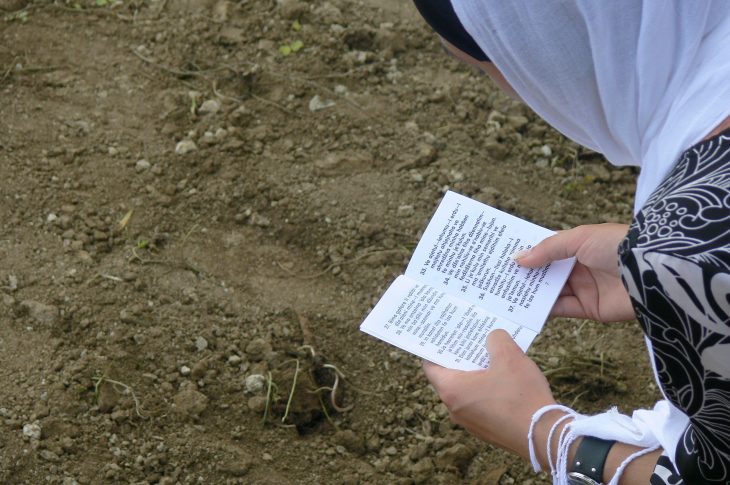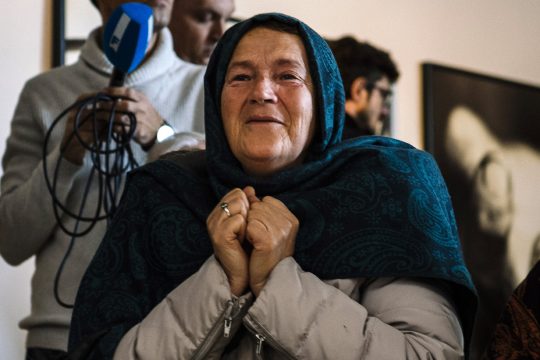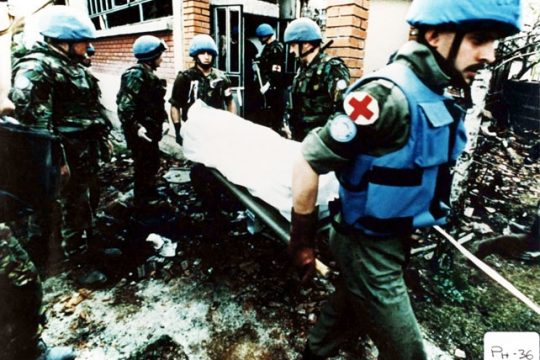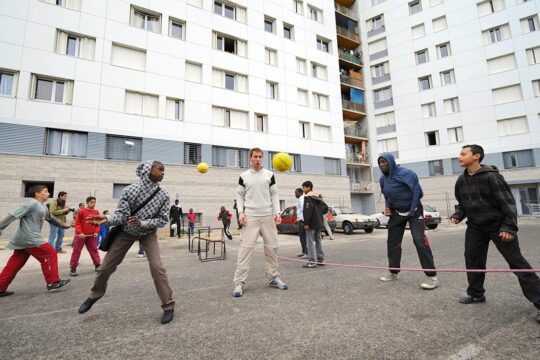The European Commission presented its strategy for the Western Balkans on Tuesday, giving countries in the region a clear perspective for EU accession.
This is to be welcomed, and there is no discussion that the future of the region lies within the European bloc. However, unaddressed grievances from the 1990s wars continue to undermine the perspective for peace.
The EU strategy notes that transitional justice processes are incomplete, adding that “all countries must unequivocally commit, in both word and deed, to overcoming the legacy of the past, by achieving reconciliation and solving open issues well before their accession to the EU”.
The EU strategy, however, fails in providing a clear road map for change.
Today, 20 years after the end of the conflict, impunity for the crimes of the 1990s is widespread throughout the Western Balkan states and continues to undermine victims’ demands for justice.
Climate of impunity
Mounting ethnic divisions and polarisation in the region, driven by nationalistic ideologies that actively promote a climate of impunity, have superseded efforts to strengthen the rule of law and to achieve reconciliation.The limited space for civil society and independent media has negatively contributed to this stalemate. Victims find themselves excluded from decision-making on efforts to address the past or are subject to manipulation by competing nationalistic claims.
Analysts agree that new conflicts cannot be excluded, and what is of serious concern is that unaddressed grievances can again be the causes, as if lessons from the post-World War II era have not been learned. If conflict does return, this would be a major reversal of the ‘never again’ mood at the end of the 1990s when the armed conflicts came to an end in the Western Balkan countries. In this context, a soon-to-be-launched assessment report by Impunity Watch looking into the state of transitional justice in the Western Balkans provides an important wake-up call.As the assessment shows, efforts in the area of transitional justice, such as prosecutions, reparations for victims, truth-seeking and institutional reform have so far missed the point and entrenched rather than opened up systems of impunity and ethnic polarisation. The report therefore concludes that there’s an urgent need, for the EU as well as the states themselves, to rethink engagements on transitional justice in the Western Balkans. Essential to the way forward is strengthening civil society and involving it more meaningfully in political discussions.
A strong civil society that works together across ethic divisions is the best guarantee of fighting impunity and to preventing the recurrence of conflict.
To support the civil society-led RECOM initiative to set up a regional fact-finding commission on the 1990s wars as part of the Berlin Process - a German-initiated diplomatic project aimed at helping Western Balkan states to join the EU - would be an important signal of change.The Coalition for RECOM hopes that Bosnia and Herzegovina, Kosovo, Macedonia, Montenegro and Serbia will sign an agreement to establish the commission in July under the auspices of the Berlin Process.The European Union also has major shortcomings related to policy coherence.
In 2015, EU foreign ministers adopted a comprehensive policy framework on support for transitional justice, promoting among other things participatory approaches which should place victims at their core. The policy also calls for better linking transitional justice measures in the area of truth, justice, reparations and guarantees of non-recurrence to the realities on the ground.
This however is not adequately reflected in the EU’s new Western Balkans strategy, which focuses narrowly on a few selected areas of transitional justice, such as war crimes, prosecutions and missing persons, all disconnected from each other. The RECOM initiative is mainly mentioned in an annex to the strategy.
Lesson not learned
Taking a narrow approach to transitional justice and disconnected from the realities on the ground has so far failed to open up real space for ending impunity for past wrongs. This lesson seems not to have been learned. The new strategy shows a lack of vision for long-term change.
To be successful, reform in the area of transitional justice should be coherent with the EU’s other policies and aim to be transformative at the societal level and less technical, as it currently is, with a too narrow focus on legal and institutional reforms alone.
In conclusion, ending impunity and addressing victims’ need for justice should be a key priority in the accession processes. The EU’s new Western Balkans strategy falls short in giving a clear political signal in this respect.
The EU needs to redouble its efforts and time is running out. Ending impunity for the crimes of the 1990s is a guarantee that history will not repeat itself.
This needs to be heeded in the implementation of the new strategy for the Western Balkans, because with the current speed of reform and the lack of clear vision we are going backwards rather than forwards. This is not good news for the Western Balkans but also for the European Union as a peace project itself.
This article was previously published by Balkan Insight








